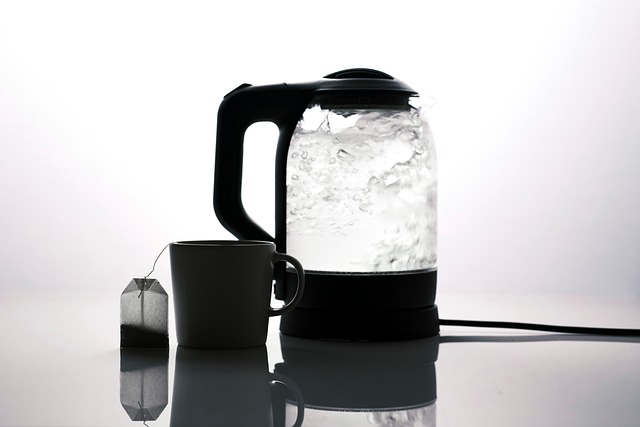Water heater maintenance is crucial for homeowners to prevent minor inconveniences from escalating into safety hazards. Signs of potential trouble include reduced heating performance, inconsistent hot water supply, strange noises, leaks, and cold showers. Annual maintenance, including regular check-ups and flushing, can prevent issues like sediment buildup. Prompt addressing through repair or replacement ensures comfort and home safety. Key indicators for replacement include heater age (over 10 years old) and energy inefficiency. Modern models offer advanced energy-saving features that can be leveraged through regular checks.
Troubleshooting water heater problems is a common household task. This guide helps you navigate through identifying common issues, repairing minor troubles, and recognizing when a replacement is inevitable. Effective water heater maintenance extends the lifespan of your appliance and prevents costly surprises.
Learn to assess whether a repair will suffice or if it’s time to invest in a new unit. By understanding these key distinctions, you’ll make informed decisions regarding your water heating system’s longevity.
- Identifying Common Water Heater Issues
- When Repair is the Best Course of Action
- Knowing When a Replacement is Necessary
Identifying Common Water Heater Issues

Water heater problems can range from minor inconveniences to significant safety hazards, making it crucial for homeowners to recognize common issues. One of the most frequent troubleshooting tasks involves addressing reduced water heating performance, which could be caused by several factors. Regular water heater maintenance is essential in preventing these issues; scheduling annual check-ups can help identify potential problems early on.
Common signs of water heater trouble include inconsistent hot water supply, strange noises coming from the tank, and persistent leaks. An aging water heater might struggle to maintain temperature, leading to cold showers. Moreover, if your water heater is making clicking sounds or has a burning odor, it could indicate electrical issues or sediment buildup, respectively. Promptly addressing these problems through repair or replacement is vital for maintaining comfort and safety in your home.
When Repair is the Best Course of Action

Water heater problems can range from minor inconveniences to major issues that require immediate attention. Repairing your water heater might be the best course of action if the issue is relatively simple and cost-effective. Regular water heater maintenance, such as flushing and cleaning, can often prevent common problems like sediment buildup, which can reduce efficiency and cause heating elements to fail.
If you notice minor issues like a slight temperature drop, increased energy bills, or reduced hot water flow, these could be early signs of trouble. Addressing these symptoms promptly through basic repairs and maintenance can extend the life of your water heater. However, if the problem is more severe, such as constant rumbling sounds, unusual leaks, or no heat at all, it might be time to consider a replacement.
Knowing When a Replacement is Necessary

When it comes to water heater maintenance, recognizing the signs that indicate a need for replacement is crucial. While minor issues can often be resolved with simple repairs, there will be instances where the damage is beyond restoration. One of the primary indicators is age; as water heaters aged 10 years or more are more prone to frequent breakdowns and inefficiencies. Regular maintenance checks can help identify potential problems early on, allowing for timely repairs.
Another significant factor is energy efficiency. If your water heater is old and consumes excessive energy, replacement might be the smarter choice. Modern models offer advanced features that enhance energy efficiency, reducing utility costs. Additionally, if you’ve noticed persistent temperature fluctuations or inconsistent hot water supply, it could signal a faulty heating element or other serious issues that require a complete overhaul.
Regular water heater maintenance is key to avoiding costly repairs or premature replacements. By understanding common issues and knowing when to repair or replace, homeowners can extend the lifespan of their water heaters and ensure consistent hot water availability. Remember, addressing problems early can prevent more severe damages and save you from unexpected expenses. Implement these guidelines for effective water heater care and maintain peace of mind in your home’s hot water supply.
